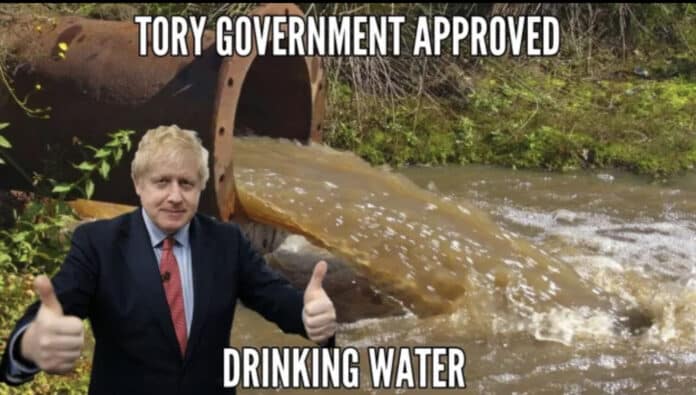The aftermath of the government voting down an amendment to the Environment Bill saw a number of claims from the media and opponents, and counter-claims from MPs defending their decisions. Some of these could do with clarification or correction.
Claim #1:“Tory MPs vote to allow water companies to dump raw sewage into Britain’s rivers and seas” – MailOnline (also Evolve Politics and the Metro)
What this misses is the fact that a vote either way would have continued to allow sewage to be released into rivers.
The alternative amendment would have required water companies to progressively reduce the harm they were doing, but it did not explicitly state that the practice should be stopped entirely.
There is a bit of a grey area here as to what exactly the amendment calls for. The amendment’s explanatory notes say its purpose “is to try to eliminate, not simply reduce, the harm caused…by the discharge of untreated sewage into rivers.” However, explanatory notes have no legal effect.
The amendment itself called for companies to progressively reduce the harm of sewage discharge rather than the elimination of harm, or the elimination of sewage discharge itself.-
Claim #2:“To get rid of or eliminate storm sewage overflows would cost between—these are very wide figures—£150 billion and £660 billion” – Rebecca Pow (and other Conservative MPs)
As mentioned, it’s unclear whether the amendment would have necessarily required water companies to completely replace the sewerage infrastructure with the aim of eliminating sewage discharge entirely.
The £150 billion figure cited seems to come from analysis commissioned by the Storm Overflows Taskforce, which is due to be published shortly. We’ve asked Defra for more information on the £660 billion figure also used.-
Claim #3:“Six weeks ago, Govt said polluters could dump risky sewage into rivers because Brexit disrupted water treatment chemical supply chains” – Viral tweet
Brexit has been at least cited as a factor which might allow water companies to increase how much sewage they discharge.
The Environment Agency says that “permits contain conditions that control the quality of the effluent you can discharge”, but that companies may not be able to comply with these conditions if they cannot get water treatment chemicals due to a number of reasons, including the pandemic, supply chain failure and “the UK’s new relationship with the EU.”
If you like our content please keep us going for as little as £2 a month https://dorseteye.com/donate/







